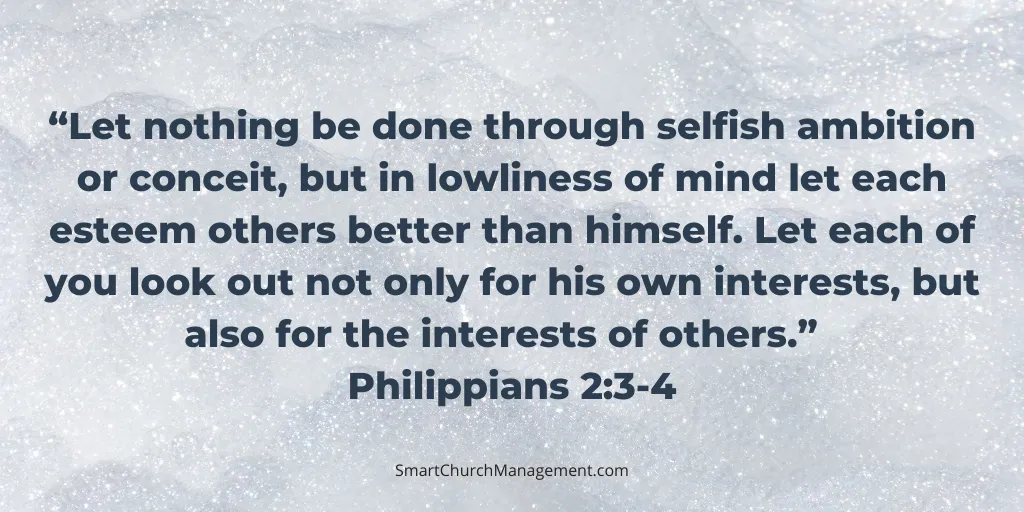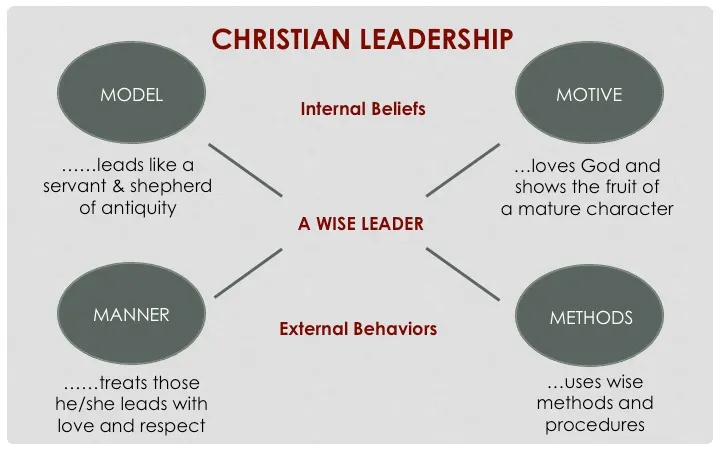Introduction
Leadership can take many forms and be practiced at various organizational levels, from formal leadership roles such as managers and executives to informal leaders who influence others through their actions and behaviors. Leadership is not solely based on a title or position but on the ability to inspire and bring out the best in others.
There are various leadership styles, including autocratic, democratic, transformational, servant leadership, etc., each with its own strengths and weaknesses. A good leader is adaptable and can tailor their approach to the needs and dynamics of their team or organization.
Ultimately, leadership is about creating a positive impact, driving change, and fostering growth and development in individuals and organizations. It is a complex and dynamic process that requires continual learning, self-awareness, and a commitment to serving others.
What is Leadership?
Leadership is the ability to inspire, influence, and guide others towards a common goal or purpose. It involves setting a clear vision, motivating and empowering people to achieve that vision, and making decisions that drive progress and success. Effective leaders exhibit qualities such as integrity, honesty, vision, empathy, and resilience.
Leadership is the process of influencing and guiding others towards achieving common goals. It is a multi-faceted concept that encompasses various aspects, such as Visions and Direction, Influence and Motivation, Decision-Making and Problem-Solving, Communication and Interpersonal Skills, Adaptability and Change Management, Ethical Conduct and Integrity
Vision and Direction:
- Effective leaders are able to articulate a clear and compelling vision for the future, which inspires and motivates their followers.
- They provide a sense of direction and purpose, helping individuals and teams understand their roles and contributions.
Influence and Motivation:
- Leaders can influence and motivate others to take action, overcome challenges, and work towards a shared vision.
- They inspire commitment, enthusiasm, and a sense of ownership among their followers.
Decision-Making and Problem-Solving:
Leaders make critical decisions, often in the face of uncertainties and complexities.
They demonstrate sound judgment, analytical skills, and the ability to navigate through challenges and find solutions.
Communication and Interpersonal Skills:
- Effective leaders are skilled communicators, able to convey their ideas, listen actively, and foster open and transparent communication.
- They build strong relationships, demonstrate empathy, and create a positive and collaborative work environment.
Adaptability and Change Management:
- Leaders recognize the need for change and are able to navigate their organizations or teams through periods of transition and uncertainty.
- They demonstrate flexibility, agility, and the ability to adapt their leadership style and strategies to meet the evolving needs of the situation.
Ethical Conduct and Integrity:
- Ethical leadership is characterized by honesty, transparency, and a commitment to moral principles.
- Leaders serve as role models, demonstrating the values and behaviors they expect from their followers.
- Leadership can be exercised at various levels, from formal positions of authority to informal roles within a team or organization. Effective leadership is not just about a title or position but about the ability to inspire, empower, and guide others to achieve shared goals.
The passage in Matthew 20:26 speaks to the concept of leadership from a Christian perspective. It says, “But whoever would be great among you must be your servant.”
This verse provides an important perspective on leadership that is distinct from the worldly understanding of power and authority. In the Kingdom of God, true greatness and leadership is not found in lording over others or seeking personal gain, but in humble service and sacrifice for the good of others.

Principles of Leadership
There are various types of leadership styles and approaches that individuals can adopt based on their personality, values, and the needs of their team or organization. Africa boasts a rich tapestry of Christian leadership styles shaped by cultural traditions and biblical principles. Here are two prominent styles and their corresponding Bible verses:
Servant Leadership:
This approach, as mentioned in Matthew 20:26 (see also Mark 10:43-45), focuses on serving the community’s needs and aligns with Jesus’ teachings by putting others’ needs first. The greatest leaders are those who serve others, putting their needs above their own. They lead by example, using their influence and resources to benefit those they lead. Servant leaders focus on supporting the growth and development of their followers, promoting a culture of empathy, humility, and collaboration. They prioritize the well-being of their team members and work towards creating a positive and inclusive work environment.
The key principles we can glean from Matthew 20:26 are:
Humility – Godly leaders recognize that their position is not for self-aggrandizement but to lift up and empower others. They are marked by humility, not pride or a sense of entitlement.
Selflessness – True leaders are willing to give of themselves, making personal sacrifices for the sake of those they lead. They do not demand to be served but joyfully serve.
- Communal Decision-Making: Many African cultures emphasize collaboration and seeking consensus. (Proverbs 11:14)
- Strength and Resilience: Africa’s history shapes a leadership style that emphasizes overcoming challenges. (Isaiah 40:29)
- Prophecy and Spiritual Gifts: Some African Christian leaders see themselves as guided by the Holy Spirit. (1 Corinthians 12:7-11)
It’s important to remember that these are just some guiding principles. Specific African Christian leaders may emphasize some aspects more than others, depending on their denomination, cultural background, and the needs of their communities.
Ultimately, this model of leadership reflects the life and ministry of Jesus himself, who “did not come to be served, but to serve, and to give his life as a ransom for many” (Matthew 20:28). As followers of Christ, we are called to embody this same self-sacrificial, servant-hearted leadership
This perspective flips the worldly idea of leadership on its head. Rather than climbing the ladder of success, the Christian leader is called to stoop down and elevate others. It requires a radical reorientation of one’s heart and motives.
Transformational Leadership:
Transformational leaders inspire and motivate others to achieve collective goals by setting a compelling vision and encouraging innovation and growth. They focus on developing individuals and creating a positive work culture, leading to high levels of commitment and performance. Transformational leaders are effective in driving organizational change and fostering long-term success. They challenge the status quo, promoting social justice and positive change within the community.
Bible Verse: Nehemiah 1:3-4: “When they came and told me, I mourned and fasted and prayed several days. Then I said, ‘LORD, the God of heaven, the great and awesome God, who keeps covenant with lovingkindness for those who love him and keep his commandments, may your ear be attentive and your eyes open to hear the prayer of your servant who prays before you now day and night for your servants, the people of Israel, confessing the sins of the people of Israel, which we have sinned against you. Even I and my father’s house have sinned.'”
Nehemiah exemplifies transformational leadership. He saw his people’s suffering and felt called to lead them in rebuilding Jerusalem.
Autocratic Leadership:
In this style, the leader makes decisions without seeking input from team members. The leader has full control and authority over the team, and employees are expected to follow orders without question. This style can be effective in situations requiring quick decision-making or in times of crisis, but it can also lead to low morale and motivation among team members.
The Bible doesn’t directly address leadership styles like autocratic, but it does show examples of both positive and negative autocratic leadership.
Autocratic leaders in the bible hold all the authority and make decisions with little to no input from others. Some rulers in the Bible reflect this style. Pharaoh in Exodus exemplifies this with his absolute control over the Israelites. King Rehoboam (1 Kings 12:14) is another, where his harsh response to the people led to a kingdom divided, and also Jezebel (1 Kings) was an autocratic leader who used their power for selfish reasons and oppressed the people.
The Bible features several examples of autocratic leadership, where leaders hold absolute power and make decisions without consulting their followers. Here are two prominent instances:
- Pharaoh in Exodus: Pharaoh, the ruler of Egypt, exemplifies a harsh autocratic leader. He enslaves the Israelites and ignores their pleas for freedom. His decisions are solely focused on maintaining his own power, even when faced with divine intervention through Moses [Exodus 5].
- King Rehoboam in 1 Kings: Rehoboam inherits the throne of Israel from his father, Solomon. When approached by the people with concerns about taxes and burdens, he disregards their pleas and threatens to increase their hardship. This autocratic approach leads to a rebellion and the fracturing of the kingdom [1 Kings 12:1-19].
However, the Bible also shows that strong, authoritative leadership can be positive if it’s used justly. King David is often seen as an example. While he made mistakes, he generally used his power to follow God and benefit the people of Israel.
Here are some key points to remember:
- The Bible emphasizes righteous rule, where the leader acts with justice and God’s will in mind (Proverbs 29:2).
- Leaders shouldn’t “lord it over” the people (Matthew 20:25-26).
- Some righteous leaders like Moses or David had to make tough decisions without constant consultation, but they did so prayerfully and for the people’s good.
Democratic Leadership:
This style emphasizes collaboration and participation. The leader seeks input and feedback from team members when making decisions. Team members are encouraged to share their ideas and opinions, fostering a sense of ownership and commitment.
Democratic leadership can lead to higher employee engagement and creativity, but it may take longer to reach decisions.
there are Biblical passages that reflect principles of democratic leadership. Here are some concepts that connect:
- Shared Decision-Making: In Exodus 18:13-23, Moses establishes a system with leaders chosen by the people to help him with decision-making.
- Equality: The idea of all people being created equal before God is found in Genesis 1:27. This aligns with the democratic ideal of equal rights. The concept of justice and following the Law applies equally to all, regardless of social status (e.g. Deuteronomy 16:18-19).
- Justice: The Bible emphasizes fair treatment for all, which is a cornerstone of a just democracy.
- Respect for the Community: Leaders in the Bible are often depicted as serving the needs of the people they lead rather than ruling them with absolute power. Acts 15:22-29 showcases the early church coming together to make a decision through discussion and considering different perspectives.
- Leadership by Consent: The Israelites agreeing to Moses’ leadership after the Exodus from Egypt demonstrates a form of consent (Exodus 19:8).
- Community Voice: Acts 15:22-29 showcases the early church considering the apostles’ and elders’ decisions together with the voice of the broader community
These examples highlight a leadership style that considers the needs and voices of the community. It’s important to note that leadership in the Bible is often seen as ultimately coming from God. However, these passages show leaders who consult with others and consider their input. These principles provide a basis for democratic ideals within the biblical text.
Laissez-Faire Leadership:
In this style, the leader takes a hands-off approach and allows team members to make decisions and manage their own work.
Laissez-faire leaders give employees autonomy and freedom, which can promote creativity and independence but may also lead to a lack of direction and accountability.
Laissez-faire leadership is a hands-off approach where the leader provides resources but offers minimal guidance or intervention. Some argue God exhibits this by granting humans free will (Judges 3:1-4). This allows people to make choices, even if they stray from God’s plan.
However, it’s important to note the potential dangers of a purely laissez-faire leader. In the Bible, ineffective leadership is often portrayed negatively. So, God grants free will and provides guidance through scripture and prophets.
There’s more discussion in Christian circles about servant leadership, which emphasizes putting the needs of others first. If it empowers followers, this type of leadership can share some characteristics with laissez-faire leadership but differs in its focus on service and support.
Charismatic Leadership:
Charismatic leaders have the ability to inspire and influence their followers through their personal charm, enthusiasm, and vision.
They are often seen as role models and are able to generate a high level of commitment and loyalty from their team members.
- Focus on Inspiration: Biblical charismatic leaders inspire and motivate followers. They often challenge the status quo and offer a compelling vision for the future, like Moses leading the Israelites out of Egypt (Exodus).
- Strong Presence: These leaders possess a certain magnetism that draws people in. Consider David, the shepherd boy who united the Israelites (1 Samuel).
- Divine Connection: In the Bible, charisma is often linked to God’s favor. Leaders are seen as divinely chosen and empowered to carry out God’s will. Prophets like Elijah are good examples (1 Kings).
It’s important to note that the Bible also warns against charismatic leaders who misuse their power. Some leaders, like King Saul, start well but succumb to temptation (1 Samuel).
Visionary Leadership:
The concept of visionary leadership in the Bible differs slightly from modern interpretations. Here’s a breakdown:

A visionary leader is a catalyst with a mission, a purpose, and a vision burning within them, propelling them forward.
A visionary leader knows himself or herself well. They are confident in their spiritual gifts, talents, and skills and realistic about their strengths and weaknesses. They know their purpose and calling.
Like the Apostle Paul prayed in the book of Ephesians, the “eyes of their heart” have been enlightened that they might know the hope to which they have been called (Ephesians 1:17-18). A Visionary leader sees with eyes of faith, knows what God has in store for them, and passionately pursues it.
They are future-focused, always seeking the Lord and where He wants to take them next. They are dreamers of new possibilities and opportunities.
- Divine Vision: Leaders receive visions or messages directly from God, outlining a desired future or course of action [fairlyspiritual.org]. This vision isn’t a personal idea but rather God’s will.
- Following God’s Direction: The leader’s role is to interpret and enact this vision faithfully. They inspire and guide people to live according to God’s plan.
- Examples: Nehemiah rebuilding Jerusalem’s walls (Nehemiah 1:1-7) and Moses leading the Israelites out of Egypt (Exodus 3) are prime examples of visionary leadership.
- Focus on Character: While visions are significant, the Bible emphasizes a leader’s character. They must be trustworthy and exemplify Christian qualities.
Spiritual Leadership:
Spiritual leadership is simply defined as the God-given spiritual ability and responsibility to lead God’s people. The Bible portrays spiritual leadership as guiding others toward a deeper relationship with God. Here are some key aspects:
- Leading by Example: A spiritual leader embodies the teachings of their faith. They are someone whose life reflects their values and inspires others to live according to their beliefs [compare with Matthew 20:25-28].
- Stewarding God’s Word: A spiritual leader’s primary aim is to help others grow in their faith and understanding of God’s will. They are shepherds who guide their flock towards spiritual maturity. Spiritual leaders faithfully communicate God’s message as found in scripture. They teach and explain the Bible to help others understand its meaning [compare with 1 Timothy 3:2].
- Servant Leadership: True spiritual leaders prioritize the needs of their followers over their own desires. They see their role as serving and equipping others for spiritual growth [compare with Mark 10:43-45]. Unlike worldly leadership, biblical leadership emphasizes service. Leaders are called to imitate Jesus, who modeled humility by washing his disciples’ feet (John 13:12-17). They lead by example and prioritize the needs of those they lead.
- Accountability to God: Spiritual leaders recognize their own imperfections and submit to God’s will. Ultimately, spiritual leaders are accountable to God for their actions and the well-being of those they lead ( Romans 14:12, Hebrews 13:17). They should strive to make decisions based on God’s word and submit their will to His.
- Character and Integrity: Spiritual leaders are expected to be upstanding individuals who exemplify Christian qualities like honesty, integrity, and moral purity. They must be someone others can trust and admire. (Titus 1, 1 Timothy 3)
- Teaching and Equipping: Spiritual leaders play a role in teaching scripture and equipping others for ministry. They help believers understand their faith and use their God-given gifts to serve the church (Ephesians 4:11-12).
Further Bible Readings on Spiritual Leadership: 1 Corinthians 11:1, Ephesians 4:11-12, Titus 1:5-9
The Bible offers numerous examples of spiritual leaders, from Moses and David to Jesus himself. By following these principles, spiritual leaders help others grow in their faith and develop a closer relationship with God.
By understanding these styles and their biblical underpinnings, we gain a deeper appreciation for the diverse landscape of African Christian leadership.
These are major examples of leadership styles, and many leaders may adopt a combination of these approaches based on their team’s situation and needs. Effective leaders are adaptable and can modify their leadership style to support their team best and achieve organizational goals.





